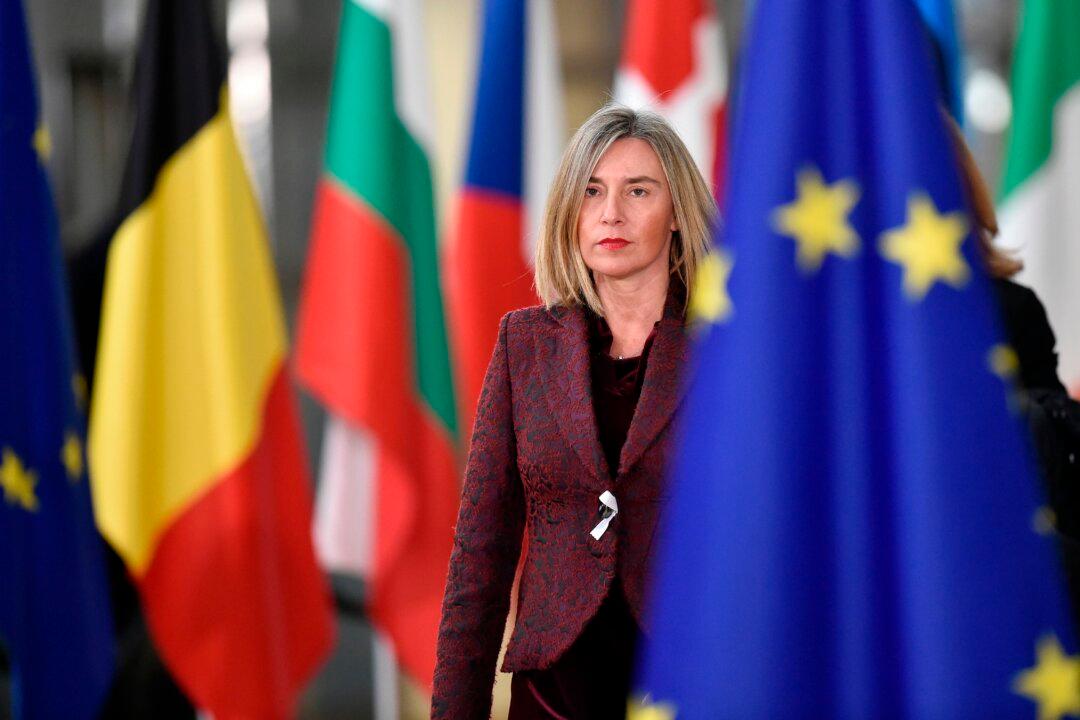WARSAW—The European Union has adopted an updated “blocking statute” under which European businesses will not have to comply with renewed sanctions imposed by the United States, targeting Iranian financial transactions that involve U.S. dollars, Iran’s automotive sector, the purchase of commercial planes, and metals including gold.
EU Rolls Out Measures to Shield European Firms from Iran Sanctions
'Blocking statute' goes into effect alongside US restrictions

The EU's high representative for foreign affairs and security policy Federica Mogherini arrives on the first day of a summit of EU leaders at the EU headquarters in Brussels, on March 22, 2018. John Thys/AFP/Getty Images

Tom Ozimek
Reporter
|Updated:



